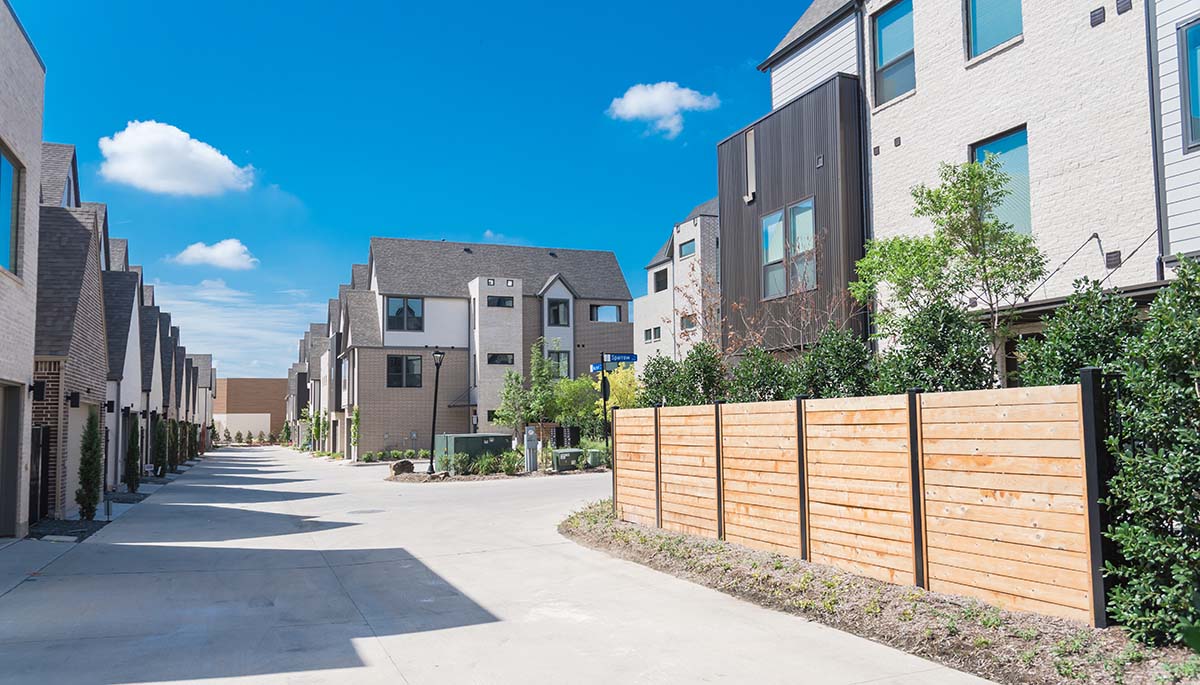
- #1 – Monthly levies: what are they?
- #2 – Ask what levies are used for in the residential community
- #3 – Stay up to date with residential community legislation
- #4 – Understand the rules set out by the body corporate
- #5 – Speak to the community manager
A residential community is often the picture of perfection. Lush lawns, friendly neighbours, and 24-hour security. What more could a homeowner want?
Buying into a residential community can be an amazing opportunity but many people move in without understanding the intricacies involved.
Homeowner’s associations or body corporates often manage residential communities, which is quite different to living in a freestanding home in the suburbs. Because you are living in a community, there are rules that need to be adhered to by both owners and residents alike.
Following is a short list of things to consider before buying into a residential community.
#1 – Monthly levies: what are they?
Body corporates in residential communities require the homeowners to pay a monthly levy.
The monthly levy is an amount that goes to a collective management fund and is used for general maintenance and upkeep of the estate or complex. This amount can be anywhere from a few hundred to a few thousand Rands per month.
It is often payable above and beyond normal rates and taxes, so be sure to factor these fees into your monthly budget before you decide to buy in a residential community.
#2 – Understand what levies are used for
If you are serious about buying in a residential community, you need to know what the monthly levies will be used for.
Monthly levies come out of your pocket and so, it is your right as a homeowner to know where the funds will be allocated. As mentioned in the previous point, they are typically used for general maintenance of the complex, but make sure you know what that includes. For instance, will this include upkeep of communal areas only or will it also include upkeep of individual units?
Levies can also be allocated towards additions to the residential community. The board might use the money to install something like a swimming pool or enhance the security of the complex.
Whichever the case, it is in your best interest to know what exactly they will do with your money.
Related Reading: 10 Questions to ask your Landlord before Renting
#3 – Stay up to date with residential community legislation
Residential communities are not immune to changing legislation and new laws that come into practice.
Body corporates and homeowners associations should inform residents of new legislation. It is, however, a good idea for you to get into the habit of doing independent research.
If you decide to make the investment, keep a file with any correspondence you receive from the body corporate.
If you receive information from an external source, query it immediately and file the response from the body corporate.
#4 – Understand the rules set out by the body corporate
Before buying a property in a residential community, ask for the conduct rules as set out by the body corporate.
This will give you a better idea of what is expected of you and if you are willing to fit into that lifestyle.
These rules will include bigger issues like remodelling and building onto your own unit. It will also involve smaller rules like what you may or may not plant in your yard, if and how many pets you may own, and at what time you need to reduce your noise levels.
Knowing the rules is not just about following them but also about protecting your asset.
#5 – Speak to the community manager
When you decide to buy into a residential community, meet with the community manager first. He or she will tell you all you need to know.
They are often more knowledgeable than your real estate agent when it comes to that specific community and should, therefore, be able to answer all your questions clearly.
Remember, communication is key to gaining enough knowledge and understanding your rights and responsibilities, so keep it flowing!
Moving into a residential community can offer you an amazing lifestyle, but make sure that you have all the critical information available ahead of time. You don’t want to buy or invest in a community only to end up with buyer’s remorse.
Loved discovering this? Why not sign up for our popular bi-weekly newsletter?
Follow and like us on ❤ Instagram ❤ Facebook ❤ Twitter ❤ LinkedIn ❤ YouTube ❤ Tiktok ❤ Pinterest for updates.
Ready to buy a home in a residential community? Start your search on ImmoAfrica.net! Find cheap and affordable properties for sale in the following popular areas:
Gauteng: Sandton, Randburg, Midrand, Roodepoort, Akasia, Centurion, Alberton, Bedfordview, Edenvale
Western Cape: Atlantic Seaboard, Cape Town, Gordons Bay, George, Knysna, Mossel Bay, Plettenberg Bay
KwaZulu Natal: Umhlanga, Ballito, Amanzimtoti, Pinetown, Westville, Hillcrest, Margate






